-
 Bitcoin
Bitcoin $117700
-1.00% -
 Ethereum
Ethereum $4458
-3.91% -
 XRP
XRP $3.119
0.14% -
 Tether USDt
Tether USDt $1.001
-0.02% -
 BNB
BNB $836.6
-1.56% -
 Solana
Solana $189.5
-3.90% -
 USDC
USDC $0.9998
-0.02% -
 Dogecoin
Dogecoin $0.2335
1.29% -
 Cardano
Cardano $0.9642
1.51% -
 TRON
TRON $0.3539
-1.19% -
 Hyperliquid
Hyperliquid $47.41
-1.84% -
 Chainlink
Chainlink $21.92
-3.28% -
 Stellar
Stellar $0.4286
-0.23% -
 Sui
Sui $3.724
-3.29% -
 Bitcoin Cash
Bitcoin Cash $594.8
-0.78% -
 Ethena USDe
Ethena USDe $1.001
0.04% -
 Hedera
Hedera $0.2501
-2.06% -
 Avalanche
Avalanche $23.96
-4.87% -
 Litecoin
Litecoin $119.0
-2.32% -
 Toncoin
Toncoin $3.473
0.82% -
 UNUS SED LEO
UNUS SED LEO $9.596
0.17% -
 Shiba Inu
Shiba Inu $0.00001301
-0.39% -
 Uniswap
Uniswap $11.03
-0.25% -
 Polkadot
Polkadot $3.935
-2.62% -
 Dai
Dai $1.000
0.01% -
 Bitget Token
Bitget Token $4.564
-1.76% -
 Cronos
Cronos $0.1512
-4.11% -
 Ethena
Ethena $0.7306
-1.09% -
 Pepe
Pepe $0.00001087
-2.68% -
 Aave
Aave $300.2
-4.00%
How to set price alerts on Coinbase Which currencies are supported
Set up price alerts on Coinbase for BTC, ETH, and more to stay updated on market movements; log in, navigate to 'Assets', and customize your notifications.
May 10, 2025 at 08:21 pm
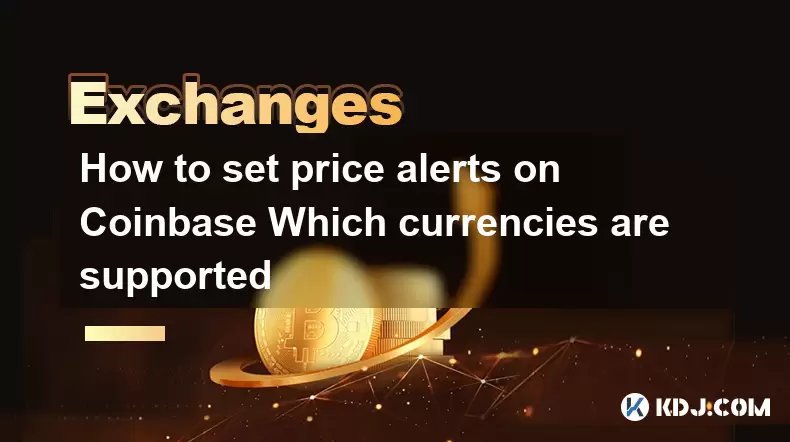
Setting price alerts on Coinbase can be a crucial tool for any cryptocurrency enthusiast looking to stay on top of market movements. Whether you're interested in Bitcoin, Ethereum, or any other supported cryptocurrency, Coinbase allows you to set up alerts to notify you when your specified price thresholds are reached. In this article, we will walk you through the process of setting up price alerts on Coinbase and discuss which currencies are supported by this feature.
Accessing the Coinbase Platform
To begin setting up price alerts, you first need to access the Coinbase platform. You can do this by visiting the Coinbase website or using the Coinbase mobile app. Ensure that you are logged into your account before proceeding.
- Visit the Coinbase website or open the Coinbase app on your mobile device.
- Log into your account using your email address and password, or use biometric authentication if available.
Navigating to the Price Alerts Section
Once you are logged in, you need to navigate to the section where you can set up your price alerts. This can be done through the following steps:
- Click on the 'Assets' tab at the top of the page or in the menu on the mobile app.
- Select the cryptocurrency for which you want to set a price alert.
- Scroll down to the 'Price Alerts' section. On the mobile app, this might be under a different menu or settings section.
Setting Up a Price Alert
After reaching the price alerts section, you can set up an alert by following these detailed steps:
- Click on 'Create Price Alert' or a similar button, depending on the platform's interface.
- Choose the type of alert you want to set. You can usually set alerts for when the price goes above or below a certain threshold.
- Enter the price threshold at which you want to be notified. Make sure to input the correct value to avoid missing out on important market movements.
- Select the notification method. Coinbase typically offers notifications via email, push notifications on mobile devices, or both.
- Confirm the alert by clicking on a button such as 'Save' or 'Create Alert'.
Supported Currencies for Price Alerts
Coinbase supports price alerts for a variety of cryptocurrencies. Some of the most popular ones include:
- Bitcoin (BTC)
- Ethereum (ETH)
- Litecoin (LTC)
- Bitcoin Cash (BCH)
- Ethereum Classic (ETC)
- XRP (XRP)
- Stellar Lumens (XLM)
- Chainlink (LINK)
- Cardano (ADA)
This list is not exhaustive, and Coinbase may add or remove support for certain cryptocurrencies over time. To check the most up-to-date list of supported currencies, you can visit the 'Assets' section on the Coinbase platform.
Managing and Editing Price Alerts
Once you have set up your price alerts, you might need to manage or edit them based on changing market conditions or your trading strategy. Here's how you can do that:
- Go back to the 'Price Alerts' section for the specific cryptocurrency.
- View your existing alerts to see a list of all the alerts you have set up.
- Edit an alert by clicking on it and adjusting the price threshold or notification method as needed.
- Delete an alert if you no longer need it by selecting the delete option next to the alert.
Troubleshooting Common Issues
Sometimes, you might encounter issues while setting up or receiving price alerts. Here are some common problems and their solutions:
- Not receiving notifications: Ensure that your notification settings are correctly configured both on Coinbase and your device. Check your email spam folder if you opted for email notifications.
- Price thresholds not triggering: Double-check the price you entered to ensure it is correct. Also, consider market volatility, as rapid price changes might cause delays in notifications.
- App or website issues: If the Coinbase platform is experiencing technical difficulties, try accessing it from a different device or browser. You can also check the Coinbase status page for any reported issues.
Frequently Asked Questions
Q: Can I set up multiple price alerts for the same cryptocurrency on Coinbase?
A: Yes, you can set up multiple price alerts for the same cryptocurrency. This allows you to monitor different price thresholds and be notified when each one is reached.
Q: Are there any fees associated with setting up price alerts on Coinbase?
A: No, Coinbase does not charge any fees for setting up or receiving price alerts. However, standard trading fees may apply if you decide to trade based on the alerts you receive.
Q: Can I receive price alerts for cryptocurrencies that I do not own on Coinbase?
A: Yes, you can set up price alerts for any cryptocurrency supported by Coinbase, regardless of whether you own it or not. This feature is useful for monitoring market trends and planning future investments.
Q: How quickly do price alerts get triggered on Coinbase?
A: The speed at which price alerts are triggered can vary based on market conditions and the specific cryptocurrency. Generally, Coinbase aims to send notifications as soon as possible after the price threshold is reached, but there might be slight delays due to high market volatility or technical issues.
Disclaimer:info@kdj.com
The information provided is not trading advice. kdj.com does not assume any responsibility for any investments made based on the information provided in this article. Cryptocurrencies are highly volatile and it is highly recommended that you invest with caution after thorough research!
If you believe that the content used on this website infringes your copyright, please contact us immediately (info@kdj.com) and we will delete it promptly.
- Kazakhstan's Crypto Leap: Bitcoin ETF and Central Asia's Digital Finance Future
- 2025-08-13 12:45:19
- BlockDAG Presale Blazes Past $371M: Fundraising Frenzy Fuels Crypto Sensation
- 2025-08-13 13:05:21
- Meme Coins: Chasing the 2025 Surge – Which Will Moonshot?
- 2025-08-13 10:25:23
- Bitcoin's Wild Ride: Rally, Pullback, and What's Next
- 2025-08-13 10:25:23
- Bitcoin, Bitmax, and Institutional Demand: A New Era of Crypto Investment
- 2025-08-13 10:45:12
- Solana, ROAM, and Airdrops: What's the Buzz in 2025?
- 2025-08-13 11:35:13
Related knowledge
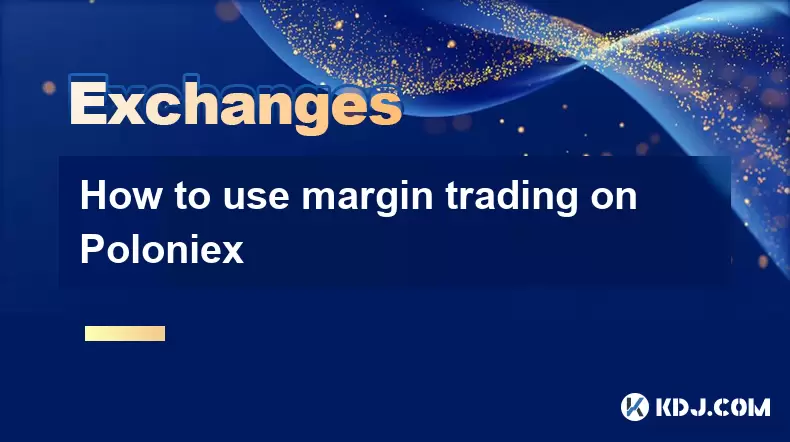
How to use margin trading on Poloniex
Aug 08,2025 at 09:50am
Understanding Margin Trading on Poloniex
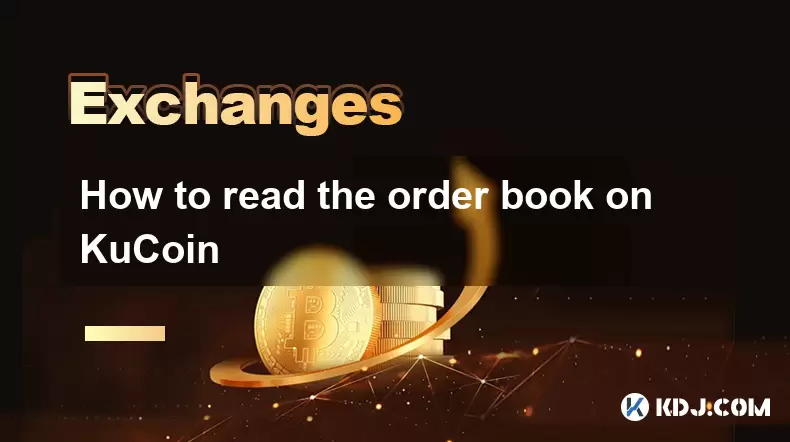
How to read the order book on KuCoin
Aug 10,2025 at 03:21pm
Understanding the Order Book Interface on KuCoinWhen accessing the order book on KuCoin, users are presented with a real-time display of buy and sell ...
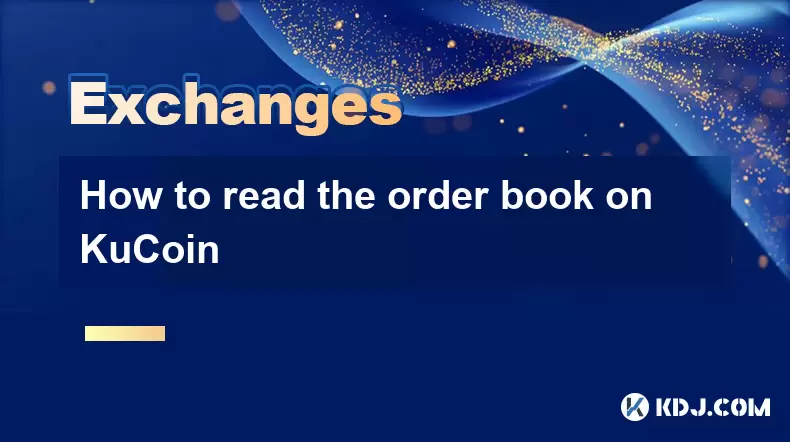
How to read the order book on KuCoin
Aug 12,2025 at 02:28am
Understanding the Basics of Staking in CryptocurrencyStaking is a fundamental concept in the world of blockchain and cryptocurrencies, particularly wi...
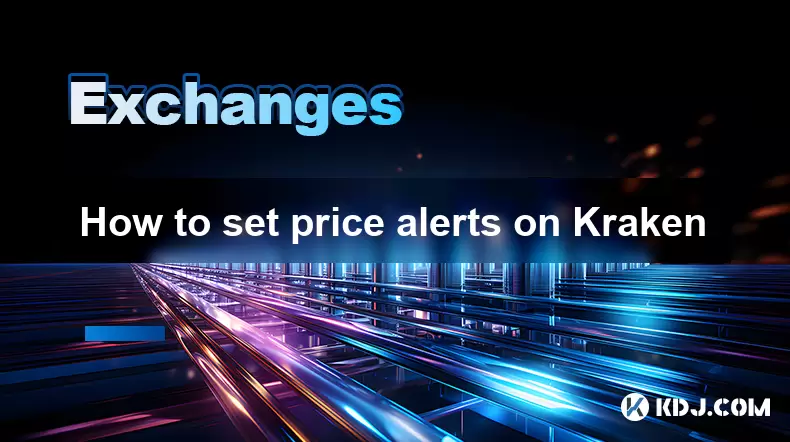
How to set price alerts on Kraken
Aug 11,2025 at 08:49pm
Understanding Price Alerts on KrakenPrice alerts on Kraken are tools that allow traders to monitor specific cryptocurrency pairs for price movements. ...

How to avoid high gas fees on Uniswap
Aug 13,2025 at 11:35am
Understanding Gas Fees on UniswapGas fees on Uniswap are payments made to Ethereum miners or validators for processing transactions on the blockchain....
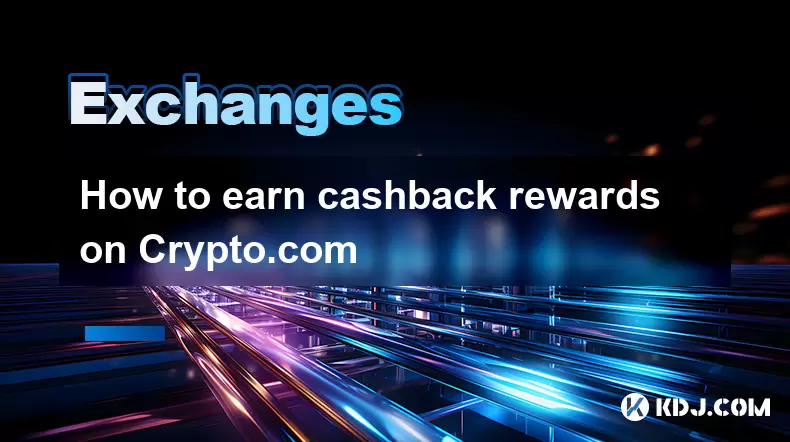
How to earn cashback rewards on Crypto.com
Aug 12,2025 at 02:08am
Understanding Cashback Rewards on Crypto.comCashback rewards on Crypto.com are a feature designed to incentivize users to spend using their Crypto.com...

How to use margin trading on Poloniex
Aug 08,2025 at 09:50am
Understanding Margin Trading on Poloniex

How to read the order book on KuCoin
Aug 10,2025 at 03:21pm
Understanding the Order Book Interface on KuCoinWhen accessing the order book on KuCoin, users are presented with a real-time display of buy and sell ...

How to read the order book on KuCoin
Aug 12,2025 at 02:28am
Understanding the Basics of Staking in CryptocurrencyStaking is a fundamental concept in the world of blockchain and cryptocurrencies, particularly wi...

How to set price alerts on Kraken
Aug 11,2025 at 08:49pm
Understanding Price Alerts on KrakenPrice alerts on Kraken are tools that allow traders to monitor specific cryptocurrency pairs for price movements. ...

How to avoid high gas fees on Uniswap
Aug 13,2025 at 11:35am
Understanding Gas Fees on UniswapGas fees on Uniswap are payments made to Ethereum miners or validators for processing transactions on the blockchain....

How to earn cashback rewards on Crypto.com
Aug 12,2025 at 02:08am
Understanding Cashback Rewards on Crypto.comCashback rewards on Crypto.com are a feature designed to incentivize users to spend using their Crypto.com...
See all articles

























































































